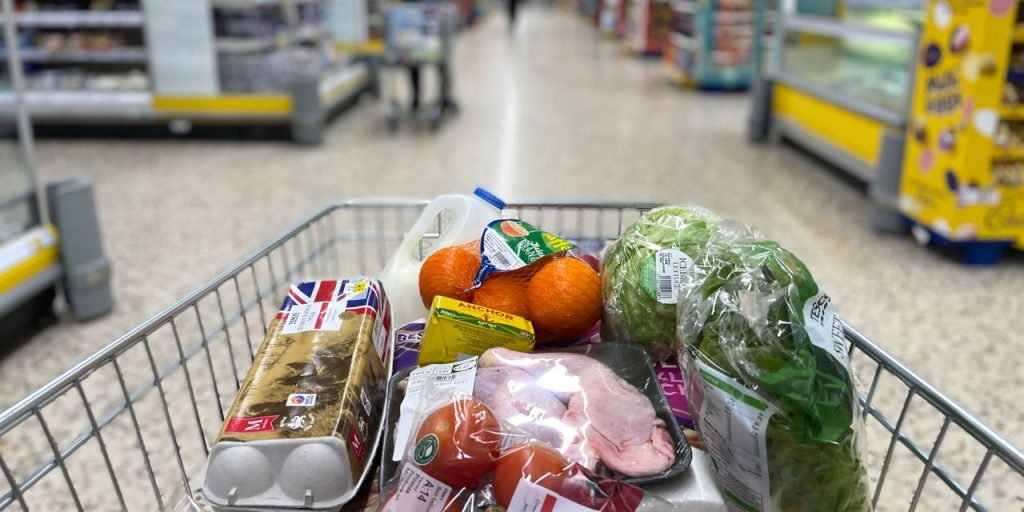The pound fell back below $1.30, U.K. government bond yields dropped sharply and London’s equity futures jumped after data showed Britain’s inflation has dropped to its lowest in more than a year.
Headline annual inflation rose 7.9% last month, less than economists forecasts of 8.1%, and way below May’s 8.7%, according to the Office for National Statistics. The core reading, which strips out volatile prices like food and energy, dropped from 7.1% to 6.9%, which was 0.2 percentage points below forecasts.
The data is good news for the Bank of England, which despite raising interest rates from near zero at the start of 2022 to 5% currently has struggled to get consumer price inflation down to its 2% target after it spiked into double digits last year.
The report — which was the first lower-than-expected reading in five months — took the market by surprise, forcing sterling
GBPUSD,
down 1% to $1.2911 and pushing 10-year gilt yields
TMBMKGB-10Y,
down 18 basis points to 4.16%.
The FTSE 100
UKX,
rose sharply as investors welcomed the lower pound and bet that U.K. borrowing costs may not have to rise as much as feared.
Jeremy Hunt, U.K. chancellor, welcomed the news, but stressed authorities needed to remain vigilant. “Today’s news shows if the government and the Bank of England are prepared to take difficult decisions, we can win the battle against inflation. But prices are still rising too fast, so we need to stick to the plan until the job is done,”
This view was shared by analysts. “Even with a softer-than-expected figure, inflation in Britain remains high and stickier than in other Western economies, and that keeps odds for further BoE action sensibly more hawkish than for other major central banks. The BoE raised its policy rate to 5% at its latest meeting, and is expected to continue toward 6.5 to 7% range in the next few months,” said Ipek Ozkardeskaya, senior analyst at Swissquote Bank.
“Not long ago some were looking at U.K. inflation as a sign of things to come in the eurozone and U.S. and pushing global yields higher. Now even in the UK inflation looks to be turning down, and this is pushing global yields lower, offering additional support for equity markets,” said Krishna Guha of Evercore ISI.
Read the full article here














